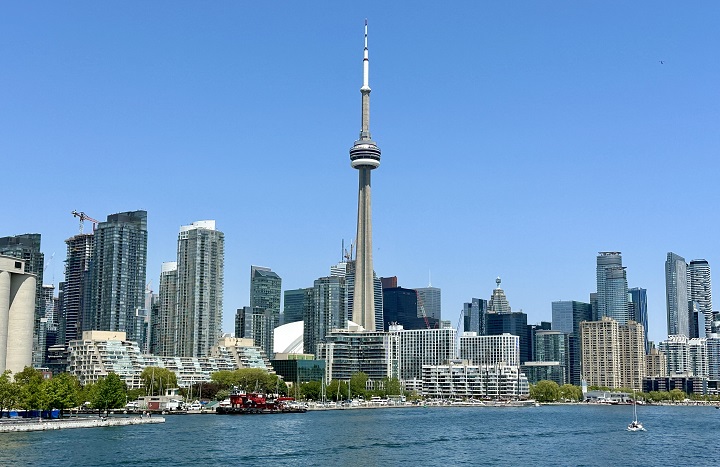Nukes, burning houses, driverless cars: 3 ways politics touched us this week
Posted April 2, 2016 7:30 am.
Last Updated April 2, 2016 12:00 pm.
This article is more than 5 years old.
OTTAWA – When I was about eight years old, my dad was walking me home from Brownies when I asked why all the adults around us were talking in hushed tones about Iran and the Shah and nuclear weapons. An ugly fear dropped into the pit of my stomach as he told me what nuclear weapons could do, shattering my perception of the safety around me.
That stomach-churning fear has been dulled with time and relative peace and security, but made a reappearance this week as leaders from around the world, including Prime Minister Justin Trudeau, gathered in Washington for a nuclear security summit. Four decades later, we are still having variations of the same conversation.
Here are three ways that politics affected the lives of Canadians this week:
NUKE TALK: U.S. President Barack Obama pointed out at the summit that 2,000 tonnes of nuclear material is kicking around the world, some of it not properly secured and all of it tempting to increasingly sophisticated terrorist organizations.
“Just the smallest amount of plutonium — about the size of an apple — could kill and injure hundreds of thousands of innocent people. It would be a humanitarian, political, economic, and environmental catastrophe with global ramifications for decades,” Obama said.
“It would change our world. So we cannot be complacent.”
The call to action came during a week when the new Trudeau government sought to rebrand its foreign policy. “Responsible conviction” is how Global Affairs Minister Stephane Dion described it: Canada would stick to its principles, but in a practical way.
Was Canada’s response to the nuclear summit — to donate $42 million to help other countries store nuclear materials — the first iteration of the new approach? There was no public mention of leveraging Canada’s command in the global uranium market or top-notch expertise in heavy water. Nor was there clarity about how Ottawa would engage with Iran or Russia, the world’s largest holder of nuclear weapons.
The Trudeau government has indicated it is open to re-establishing dialogue with both of those countries, much to the dismay of Conservatives. But we’re still waiting for the fine print.
BURNING HOUSES: Another week, another tragedy on a remote First Nations reserve. This time, nine people died in a house fire in Pikangikum in northern Ontario, including three children. The death toll is shocking, but the fire itself was not. It’s just the latest in a series of deadly fires and crises on remote reserves plagued with problems that include overcrowding, rotten infrastructure and a lack of running water.
At the same time, groups of Canadians who were hoping to sponsor Syrian refugees were crying out about the federal government scaling back its system to bring the newcomers to Canada quickly and in large numbers. The sponsorship groups — many of them community volunteers and families who had pooled their own savings in response to the government’s request for help — accused Ottawa of scaling back their generosity before the job was done. Immigration Minister John McCallum heard their plea, reversed course and restored the previous system for a little while longer.
Would a similar effort for First Nations work as well? For Syrian refugees, the government, organizations and individuals across Canada threw everything they had at a desperate people, with great effect. The problems on remote reserves are deep, disturbing and complex. That’s a description that could apply to the Middle East any day.
DRIVERLESS CARS: Where there’s technical innovation, you can count on government to be nearby with regulation. Cars, trucks and buses that drive themselves are on their way to streets near you, and the recent federal budget put a few million dollars towards making sure driverless vehicles are safe. This week, industry experts held discussions on how that should be done. It turns out Canada is behind the curve in embracing driverless vehicles. The U.K. and the U.S. are substantially ahead of us in determining a regulatory framework and setting up the conditions for testing.
But more importantly, is Canada ready for the disruption that widespread automation of vehicles could bring? The experts warned about huge changes for those who drive for a living, the demand for cars, and the types of roads and transit infrastructure that we use. Will we be ready for this?








